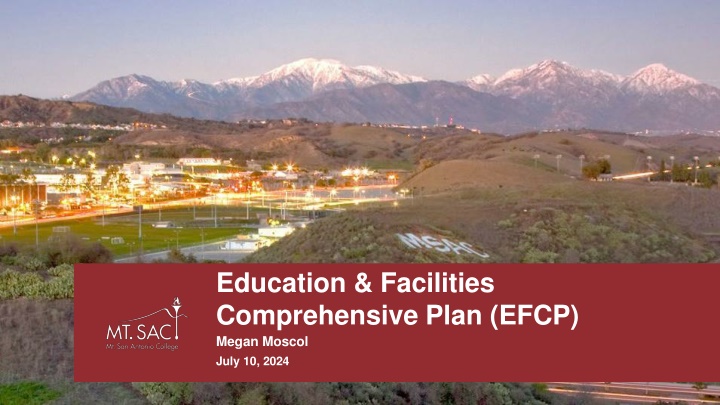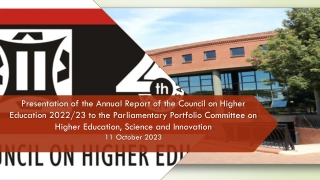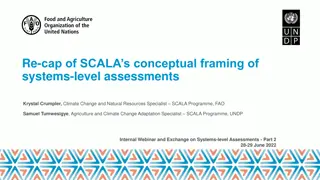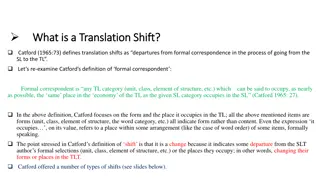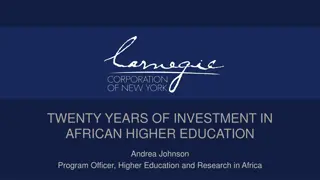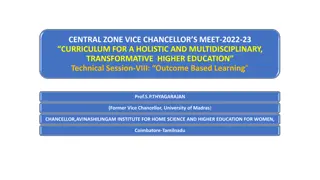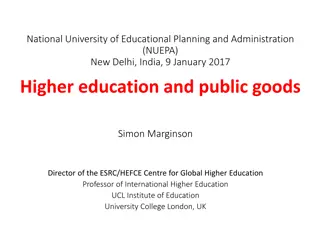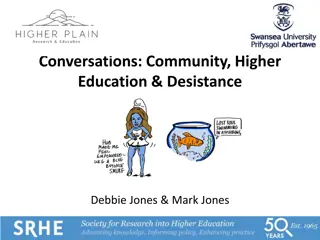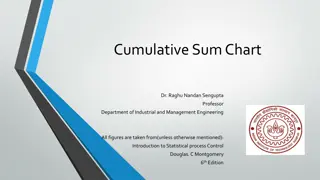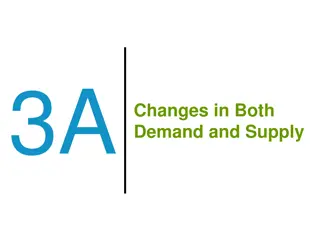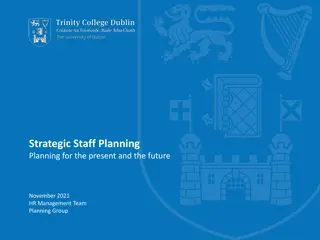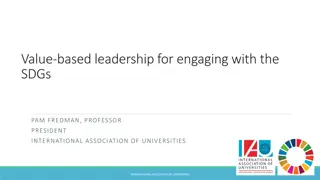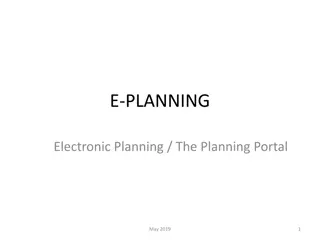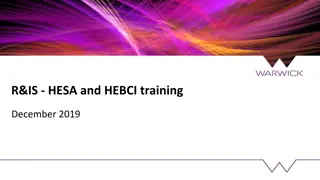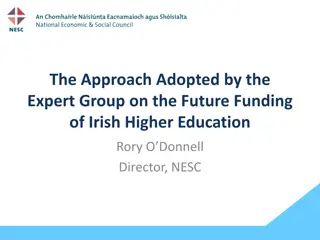Transformative Shifts in Higher Education Planning
Following the completion of Mt. SAC's 2018 Education & Facilities Master Plan, significant changes in higher education have prompted a re-evaluation of campus planning. The Education & Facilities Comprehensive Plan is a long-term blueprint to serve students effectively for the next decade. Integrated planning at Mt. SAC involves participatory governance, focused plans, and unit assessments to align with the college's mission and values. The new focus emphasizes instructional priorities, student services, and a healing-centered approach, utilizing data analysis and stakeholder feedback for decision-making.
Download Presentation

Please find below an Image/Link to download the presentation.
The content on the website is provided AS IS for your information and personal use only. It may not be sold, licensed, or shared on other websites without obtaining consent from the author.If you encounter any issues during the download, it is possible that the publisher has removed the file from their server.
You are allowed to download the files provided on this website for personal or commercial use, subject to the condition that they are used lawfully. All files are the property of their respective owners.
The content on the website is provided AS IS for your information and personal use only. It may not be sold, licensed, or shared on other websites without obtaining consent from the author.
E N D
Presentation Transcript
Education & Facilities Comprehensive Plan (EFCP) Megan Moscol July 10, 2024
Context Since completion of Mt. SAC s2018 Education & Facilities Master Plan, significant, transformative shifts have occurred in higher education that necessitate a re-evaluation of the campus s highest level integrated planning document and the processes it informs. Vision 2030 DEISA+ Healing Centered Engagement From Mt. SAC IEC Report to PAC 5/1/24
BP 3250 Institutional Planning The Education & Facilities Comprehensive Plan (EFCP) is the College s broad-based, long-range plan Assesses accomplishment of the Mission The blueprint for how best to serve our students for the next 9-10 years.
Integrated Planning At-a-Glance The EFCP serves as the foundation for integrated planning processes and cycles of continuous quality improvement. It is accomplished through Mt. SAC s participatory governance, implementation of focused plans, and the work of College units. The College aspiration for the future Vision Mission The College purpose Core Values Enduring beliefs and principles that individuals of the College hold in common and endeavor to put into action The foundation of integrated planning. Gives direction to accomplish the Mission and means to assess progress toward that goal EFCP Focused Plans Guide specialized work of the College in alignment with the EFCP Elements of student achievement used to evaluate how well the College is fulfilling the Mission ISS Planning process used to assess unit progress in support of student learning and the mission Program Review
A New Focus for the Comprehensive Plan Education & Facilities Comprehensive Plan Instructional and Programmatic Priorities Comprehensive Student Services Healing Centered Engagement Existing Plans (Strategic & Facilities) Decision- Making Tool to Guide Prioritization of all College Work DEISA+ Lens Data Analysis Stakeholder Feedback
Traditional vs. DEISA+ Comprehensive Plans Traditional DEISA+ Institutional with a facilities emphasis Student- and community- centered with instructional and support services emphasis Inclusive, broad, diverse Focus Hierarchical, limited stakeholder inclusion Program vitality and future program growth (e.g. FTES, efficiency) Linkages lacking or fragile Not addressed or limited to facilities Limited buy-in, commitment, accountability Process Quantitative and qualitative Data Clear, interdependent linkages Clear, aligned with planning and resource allocation Broad ownership, commitment, accountability Integration Implementation Impact
Presidents Advisory Council EFCP Task Force President s Advisory Council convened an EFCP Task Force with the charge to, guide and support the research, review, and development of the Educational and Facilities Comprehensive Plan, with an EFCP recommendation to the Board no later than June 25, 2025. The EFCP Task Force includes 31 members with broad-based representation: Students Faculty Classified Professionals Managers Participatory governance leadership, with an emphasis on DEISA+ and healing centered engagement
Integrated Planning Efforts Aligned with EFCP Development BP/AP Continuous Review Cycle New Resource Allocation Process Correlated to Program Review (PIE) Comprehensive Program Review Cycle (PIE) Participatory Governance Taskforce Outcomes & Assessment
Evaluating In-Progress Facilities Projects In light of economic uncertainty, Facilities is reviewing in-progress projects where funding has already been committed to consider opportunities for addressing critical space needs identified during and since the 2018 Facilities Master Plan. Evaluation is focused on the following opportunities: Prioritize student and instructional support needs over contract vendors in newly constructed facilities Right-size facilities to support existing program needs and maximize funding Co-locate mutually supportive programs Eliminate temporary or unsuitable facilities
